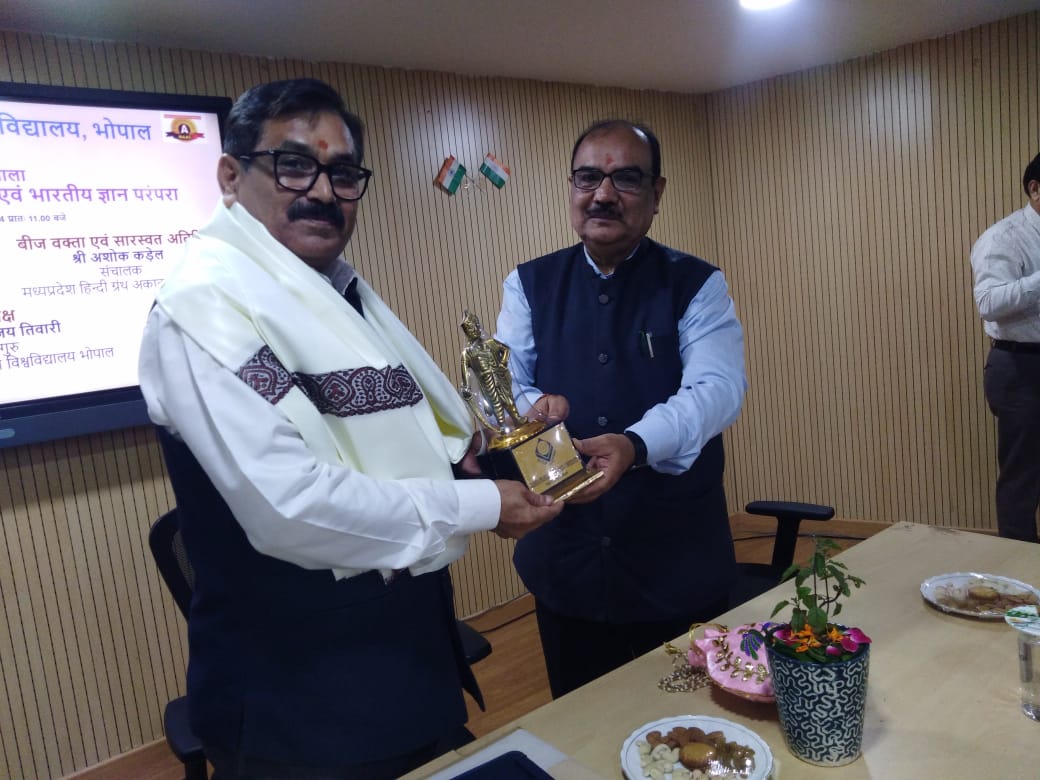CNN Central News & Network–ITDC India Epress/ITDC News Bhopal: A program on the theme “National Education Policy and Indian Knowledge Tradition” was organized at Bhoj Open University. Speaking as the keynote speaker, Dr. Ashok Kadel, Director of the Madhya Pradesh Hindi Granth Academy, emphasized that despite the diverse cultures and languages in India, we all share a common Indian culture. He stated that India has always been a country of festivals, and the purpose of education is to ensure that life is filled with celebration. He added that the aim is to embrace light over darkness and knowledge over ignorance.
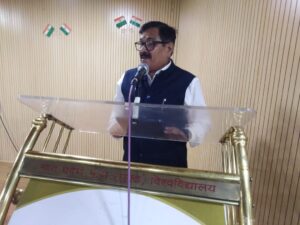
Dr. Kadel mentioned that even in hardship, our traditions have found joy, and it is essential to pass this knowledge on to future generations. He cited ancient scriptures that advise earning with a thousand hands and giving with a hundred hands, stressing the need to teach students the importance of charity towards the underprivileged. Dr. Ashok also discussed the lives of Lord Krishna and Karna from the Mahabharata, highlighting both their similarities and differences, and stated that the teachings of Lord Krishna remain relevant today.
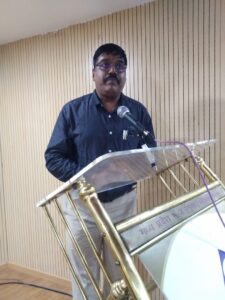
He encouraged drawing inspiration from Krishna’s life to face contemporary challenges. He further noted that every season in India is marked by a festival, and protecting nature has been an integral part of our ancient culture. We are known as worshippers of nature, and today, we face challenges like global warming, environmental pollution, and climate change, which are the result of our policies and behavior. Dr. Kadel emphasized that alongside progress, we must also care for nature. The primary goal of the National Education Policy is to develop citizens who are dedicated to the welfare of the world in thought, behavior, and action.
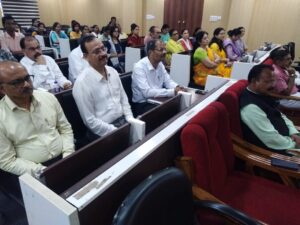
The policy aims to guide students on the path of truth and wisdom, inspire them towards spiritual knowledge, and provide holistic and India-centric education. Dr. Kadel pointed out that the increase in suicidal tendencies among students is due to a lack of patience, and that educational institutions should provide an environment that fosters the development of students’ virtues while mitigating their flaws. He also called for more research into the Indian knowledge tradition.
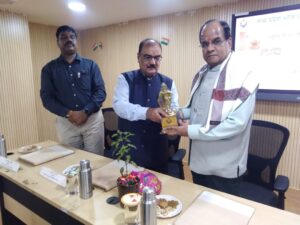
The Chief Guest, Dr. Bharat Mishra, Vice-Chancellor of Mahatma Gandhi Chitrakoot University, addressed the gathering and noted that ancient India had a Gurukul education system where teachers were held in higher regard than even deities. He stated that India is now emerging from the colonial education system. The National Education Policy (NEP) adopts a multidisciplinary approach, freeing education from the constraints of traditional systems. With the advent of the NEP, the stigma associated with languages has been removed, offering students the freedom to choose their subjects and emphasizing the development of human qualities.
Prof. Sanjay Tiwari, the Vice-Chancellor of Bhoj Open University and chair of the program, remarked that the NEP is truly an effort to understand oneself. He noted that Lord Macaulay’s imposition of Western education methods had destroyed our knowledge traditions, and now, after such a long period, efforts are being made to move away from Western education systems. He mentioned that even today, we have not entirely escaped the mentality of slavery. Dr. Tiwari described the population as a blessing and stressed that the NEP focuses primarily on skill development, promoting a sense of global brotherhood and pride in Indian identity.
The program was conducted by Dr. Ratan Suryavanshi, Director of Madhya Pradesh Bhoj Open University, and a vote of thanks was delivered by Dr. Sushil Manderia, Registrar of Bhoj Open University. The event was attended by scholars from the education sector, along with all the university’s teachers, officials, and staff.

